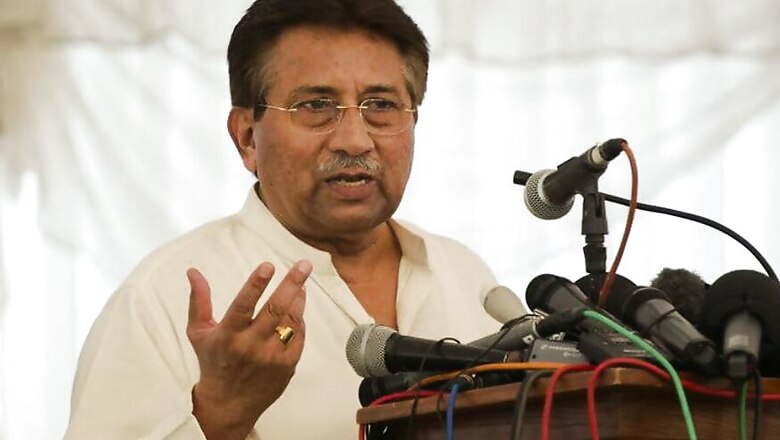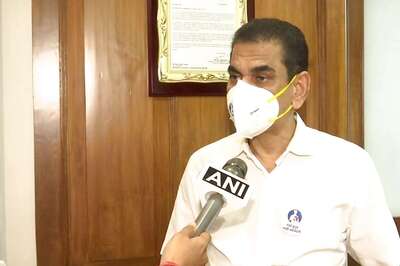
views
Islamabad: A Pakistani special court on Wednesday allowed former dictator General (retired) Pervez Musharraf until December 5 to record his statement in the high treason case against him, but made it clear that it will only accept the Supreme Court's directives and was not bound by the Islamabad High Court's order.
On Wednesday, the Islamabad High Court (IHC), after hearing the petitions filed by Dubai-based Musharraf and the Pakistan government, stopped the special court from issuing the verdict, with instructions to hear out all the parties to ensure a fair trial.
Geo News reported that a three-member bench of the special court in Islamabad, headed by Peshawar High Court Chief Justice Waqar Ahmed Seth, on Thursday said that the special tribunal is only bound to obey the Supreme Court's directives and not the high court's.
Justice Waqar said the bench will not comment on the IHC's order. The judge, however, allowed Musharraf, 76, to record his statement till December 5.
"After December 5, we will not give you further time," Justice Seth said, adding that they would hear the case on a daily basis after that date.
The judge said that Musharraf could record his statements any time prior to the next hearing.
"We are not bound to implement the high court's decision," said Justice Shahid Karim, adding, "We are only bound by the Supreme Court's orders."
"We will not comment on the high court's decision," Justice Seth was quoted as saying by Dawn News.
The proceedings were then adjourned until December 5.
The special court had on November 19 concluded the trial proceedings in the high treason case against Musharraf for declaring a state of emergency on November 3, 2007, and had ruled that a verdict would be announced on November 28 on the basis of the available record.
The IHC on Wednesday accepted the interior ministry's petition and barred the special court from announcing the verdict. A similar petition filed by Musharraf's lawyer was disposed of with the court issuing directions on it.
According to the short order, the special court is also "expected to take into consideration" the grounds raised in an application filed by Musharraf seeking his acquittal in the high treason case.
The IHC has also allowed Musharraf's counsel Barrister Salman Safdar to assist the counsel appointed for the former military ruler during the hearing, if he so wishes.
The high treason trial of the former military dictator for clamping the state of emergency on November 3, 2007, filed during the previous Pakistan Muslim League-Nawaz government, has been pending since 2013.
He was booked in the treason case in December 2013. Musharraf was indicted on March 31, 2014, and the prosecution had tabled the entire evidence before the special court in September the same year.
But due to litigation at appellate forums, the trial of the former military dictator lingered on and he left Pakistan in March 2016 with the nod of superior courts as well as the interior ministry for medical treatment.
According to previous Pakistani media reports, Musharraf suffers from amyloidosis, a rare disease caused by the build-up of an abnormal protein called amyloid in organs and tissues in the body, and is under medication.
Since then he has been declared an absconder in the case.



















Comments
0 comment